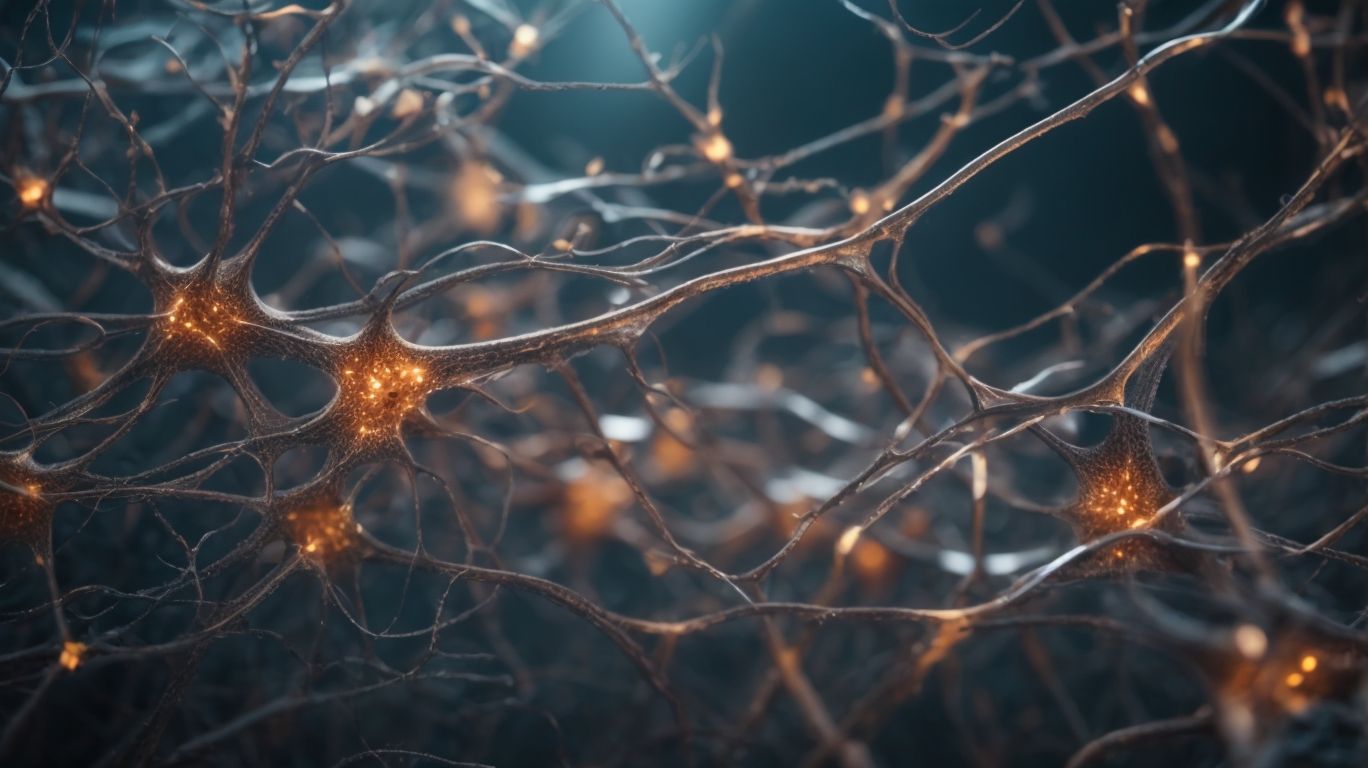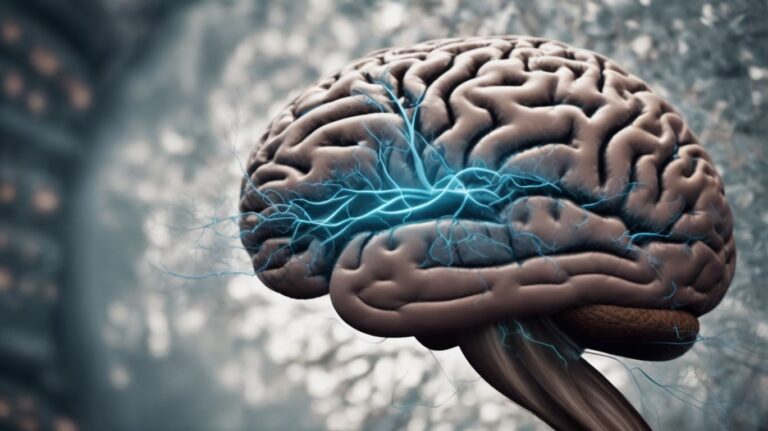Neurogenesis, the process of creating new brain cells, is a fascinating topic in the field of psychology. This article explores the various types of neurogenesis – from embryonic to adult to pathological – and how they impact the brain.
We will also discuss the factors that influence neurogenesis, such as physical exercise, diet, sleep, and stress management. We will delve into the benefits of neurogenesis, including improved memory, better mood, enhanced brain plasticity, and protection against neurodegenerative diseases.
We will provide tips on how to promote neurogenesis in your own life. Join us on this journey to better understand the science of brain cell creation.
Contents
What Is Neurogenesis?
Neurogenesis is the process of generating new neurons in the brain, particularly in adult humans.
One of the key regions where neurogenesis takes place is the hippocampus, a vital area associated with memory and learning. This generation of new neurons occurs through the activation and differentiation of stem cells in the brain. Research has shown that factors such as exercise, a stimulating environment, and even certain medications can enhance this process.
Understanding adult neurogenesis is crucial as it plays a significant role in brain function and plasticity. The ability to form new neurons contributes to cognitive flexibility, mood regulation, and overall brain health.
How Does Neurogenesis Affect the Brain?
Neurogenesis plays a crucial role in modifying and sustaining the brain’s cellular composition and function.
It is the process by which new neurons are generated in the hippocampus through the activation of stem cells. This phenomenon has significant implications for brain plasticity, influencing how the brain adapts and learns throughout life. Research indicates that neurogenesis plays a key role in memory formation and retention, as well as in learning new skills and acquiring knowledge.
Neurogenesis is closely linked to emotional regulation, with studies showing that it can impact mood and stress responses. By understanding the mechanisms behind neurogenesis, scientists aim to unlock ways to enhance cognitive functions, improve memory, and promote overall brain health.
What Are the Different Types of Neurogenesis?
Neurogenesis encompasses various types, including adult neurogenesis, embryonic development, and hippocampal neurogenesis.
Adult neurogenesis occurs in specific brain regions such as the hippocampus and olfactory bulb, contributing to learning, memory, and olfactory functions.
Embryonic neurogenesis involves the formation of the neural tube and the migration of neural crest stem cells to give rise to a variety of specialized cell types.
Hippocampal neurogenesis is crucial for maintaining cognitive function and emotional regulation, with newly generated granule cells integrating into existing neural circuits.
Embryonic Neurogenesis
Embryonic neurogenesis occurs during the early stages of development when the neural tube forms and gives rise to the central nervous system.
During this crucial stage, neural cells within the neural tube undergo a process called differentiation, where they acquire specific characteristics and functions. These specialized cells then migrate to their designated locations, guided by intricate molecular signals, to form the complex network that will eventually transform into the brain and spinal cord.
As neurogenesis progresses, a remarkable diversity of cell types are generated, each destined to contribute to various tissues and organs within the central nervous system. These cells differentiate into neurons, astrocytes, oligodendrocytes, and other supporting cell types, each playing a crucial role in the intricate functioning of the developing brain and spinal cord.
Adult Neurogenesis
Adult neurogenesis occurs in specific regions of the adult brain, such as the hippocampus, where neural stem cells give rise to new neurons throughout life.
This process plays a crucial role in various cognitive functions, learning, and memory. One of the key factors influencing adult neurogenesis is exercise. Physical activity has been shown to enhance the production of new neurons in the hippocampus, leading to improved cognitive abilities.
Moreover, enriched environments that provide novel stimuli and challenges have also demonstrated to promote neurogenesis by stimulating neural activity. Certain drugs and compounds, like antidepressants and cannabinoids, have been found to modulate adult neurogenesis, highlighting the complex interplay between physiological and environmental factors influencing brain plasticity.
Pathological Neurogenesis
Pathological neurogenesis refers to abnormal cell growth in the brain, often observed in conditions like Alzheimer’s disease or following brain damage.
When there is excessive neurogenesis, it can lead to disruptions in synaptic plasticity – the brain’s ability to form, strengthen, and eliminate connections between neurons. This, in turn, may result in cognitive impairments and memory deficits.
Conversely, insufficient neurogenesis can hinder the brain’s ability to repair and regenerate after events such as stroke.
Understanding these processes is crucial in the development of effective treatment strategies for neurodegenerative conditions. Stem cell-based therapeutic methods are being explored to harness the potential of neurogenesis in promoting brain repair and functional recovery.
What Are the Factors That Affect Neurogenesis?
Several factors influence neurogenesis, including physical exercise, diet quality, and effective stress management techniques.
Physical exercise plays a crucial role in promoting neurogenesis by enhancing blood flow to the brain, which facilitates the delivery of essential nutrients and oxygen necessary for optimal brain function. Regular physical activity also helps regulate blood glucose levels, reducing the risk of conditions that can hinder neurogenesis, such as diabetes. A diet rich in antioxidants, omega-3 fatty acids, and other nutrients supports neuroplasticity and the growth of new neurons.
Managing stress levels is paramount as chronic stress can negatively impact neurogenic processes. High stress levels are associated with increased inflammation and imbalance in neurotransmitters, which can impair cognitive function and contribute to the development of mental health conditions like depression and anxiety, ultimately affecting neurogenesis.
Physical Exercise
Engaging in physical exercise has been shown to enhance neurogenesis, particularly in the hippocampus, by stimulating the proliferation of neural stem cells.
These newly generated neurons play a crucial role in cognitive function, memory formation, and overall brain health.
Studies have demonstrated that physical activity not only boosts neurogenesis but also supports the maintenance of existing neural connections.
Neurogenesis is especially significant in the context of aging, as it can help counteract cognitive decline and reduce the risk of neurodegenerative conditions such as Alzheimer’s disease.
Through various molecular mechanisms, exercise induces the release of growth factors and neurotransmitters that create an environment conducive to brain repair and regeneration.
Diet and Nutrition
Diet and nutrition play a critical role in supporting neurogenesis, with certain nutrients and dietary patterns influencing brain cell growth and function.
Stem cells, which are essential for building and repairing neural circuits in the brain, are directly impacted by the components of our diet. Specifically, a diet rich in omega-3 fatty acids, found in fish, flaxseeds, and walnuts, has been linked to enhanced cognitive function and increased production of new neurons.
Studies have shown that certain nutrients, such as flavonoids found in berries and green tea, possess neuroprotective properties, shielding the brain from oxidative stress and inflammation. These protective mechanisms not only support neurogenesis but can also enhance the efficacy of antidepressant drugs in managing mood disorders.
Sleep and Stress Management
Quality sleep and effective stress management are essential for supporting neurogenesis in the hippocampus and maintaining optimal brain health.
Research has shown that sleep plays a critical role in the proliferation of new neurons, aiding in cognitive functions such as learning and memory.
High stress levels have been linked to a decrease in neurogenesis, which can negatively impact brain function and overall mental well-being.
As we age, the importance of prioritizing sleep and managing stress becomes even more crucial, as these lifestyle factors have a profound impact on our brain’s ability to regenerate and repair itself.
For those with neurodegenerative conditions, such as Alzheimer’s or Parkinson’s disease, implementing strategies to improve sleep quality and reduce stress can potentially slow down the progression of these disorders and improve quality of life.
What Are the Benefits of Neurogenesis?
Neurogenesis offers numerous benefits, including improved memory retention, enhanced learning capacities, and better mood regulation.
Research suggests that the constant generation of new neurons, particularly in the hippocampus, plays a crucial role in these positive outcomes. These newly formed neurons contribute to enhanced synaptic plasticity, facilitating the formation of new connections and strengthening existing ones, thereby boosting memory function and learning capabilities. The integration of these fresh neurons into neural circuits is believed to aid in emotional regulation and stability, potentially offering therapeutic avenues for individuals struggling with conditions like depression, anxiety, and other neuropsychiatric disorders.
Improved Memory and Learning
Enhanced neurogenesis in the hippocampus has been linked to improved memory formation and faster learning abilities in individuals.
Research has shown that the production of new neurons, through the process of neurogenesis, plays a crucial role in cognitive functions such as memory and learning. These newly generated neurons originate from neural stem cells in specialized regions of the brain, like the lateral subventricular zone. They integrate into existing neural circuits and contribute to the plasticity of the brain, enhancing its capacity for memory retention and acquisition of new information.
Studies have demonstrated that these newly formed neurons are involved in the encoding, consolidation, and retrieval of memories, leading to improvements in overall cognitive abilities. The process of neurorestoration through the generation of new neural cells has been linked to memory enhancement and the maintenance of cognitive function, providing a promising avenue for potential therapeutic interventions in conditions affecting memory.
Better Mood and Emotional Regulation
Neurogenesis in the hippocampus plays a crucial role in regulating mood and emotional responses, contributing to overall emotional well-being.
Neurogenesis is the process by which new neurons are generated in specific regions of the brain, such as the subventricular zone (SVZ) and the dentate gyrus (DG) of the hippocampus. These new neurons play a significant role in shaping an individual’s emotional stability and resilience to stress.
Studies have shown that increased neurogenesis in the hippocampus is associated with improved emotional regulation and reduced anxiety and depression symptoms. The integration of these newly formed neurons into existing neural circuits can enhance the brain’s capacity to adapt to emotional challenges.
Factors such as exercise, diet, and social interactions have been found to influence the rate of neurogenesis, thereby impacting the brain’s ability to process and store emotional memories.
Enhanced Brain Plasticity
Neurogenesis enhances brain plasticity by introducing new neurons that promote cognitive flexibility and adaptability in response to changing environments.
The key region where neurogenesis mainly occurs is the dentate gyrus within the hippocampus, known as the subgranular zone (SGZ).
This continuous generation of new neurons plays a crucial role in various cognitive functions such as learning and memory.
Studies have shown that neurogenesis influences olfactory memory and other forms of memory consolidation.
The process of neurogenesis has significant implications for brain repair and recovery after injury, highlighting its essential role in maintaining brain health and functionality.
Protection Against Neurodegenerative Diseases
Maintaining active neurogenesis may offer protection against neurodegenerative conditions like Alzheimer’s disease, as new neurons can contribute to brain repair and resilience.
Recent studies suggest that the presence of newly generated neurons in the hippocampus and amygdala plays a crucial role in enhancing cognitive functions and emotional regulation, which are vital for overall brain health. These new neurons have been linked to the effectiveness of antidepressant drugs and their ability to alleviate symptoms of mood disorders by promoting neural plasticity.
How Can One Promote Neurogenesis?
Promoting neurogenesis involves engaging in physical activity, consuming a balanced diet, and effectively managing stress levels.
One effective way to boost neurogenesis is by implementing a regular exercise routine that combines aerobic activities like biking or running with strength training exercises to stimulate the SVZ and encourage the proliferation of basal progenitors.
Plus exercise, dietary choices play a crucial role in supporting neurogenic processes. Including foods rich in omega-3 fatty acids, antioxidants, and essential vitamins can provide the necessary nutrients for optimal brain health and enhance neurogenesis.
Incorporating stress reduction techniques such as mindfulness meditation, yoga, or deep breathing exercises can help lower cortisol levels and create a more conducive environment for neurogenesis to occur.
Engaging in Physical Activity
Regular physical activity has been shown to stimulate neurogenesis and support brain repair mechanisms, particularly through the activation of neural stem cells.
This process is crucial in maintaining cognitive function and emotional well-being. In fact, studies have suggested that physical exercise can have similar effects on the brain as certain antidepressant drugs. By promoting the growth of new neurons, exercise can lead to increased volume in regions like the amygdala, which is associated with emotional processing and memory.
Consuming a Healthy Diet
Maintaining a nutritious diet rich in essential nutrients can support neurogenesis and enhance cognitive functions through the modulation of stem cell activity.
Specifically, the subventricular zone (SVZ) in the brain plays a crucial role in generating new neurons. Nutrients like omega-3 fatty acids found in fish, nuts, and seeds, as well as antioxidants in fruits and vegetables, can positively influence neurogenesis. Individuals living in enriched environments, such as those with access to mental stimulation and physical exercise, tend to experience increased brain cell growth.
Practicing Stress Management Techniques
Effective stress management techniques are essential for promoting neurogenesis in the hippocampus and supporting brain repair processes.
Neurogenesis refers to the process of generating new neurons in the brain, particularly in the hippocampus, a region crucial for learning and memory. Chronic stress has been shown to inhibit neurogenesis, impacting functions such as olfactory memory and cognitive abilities. By incorporating stress reduction strategies like mindfulness meditation, regular exercise, and social interaction, individuals can create an environment that fosters neurogenesis.
A healthy diet rich in antioxidants, omega-3 fatty acids, and other nutrients is also beneficial for brain health and supporting the growth of new brain cells. By managing stress effectively and adopting a holistic approach to wellness, individuals can enhance neurogenesis, which in turn promotes overall brain function and repair.
Getting Enough Sleep
Adequate sleep is crucial for supporting neurogenesis in the hippocampus and reducing the negative impact of stress on brain cell growth.
Sleep plays a vital role in the brain’s ability to generate new neurons and combat the detrimental effects of stress on cognitive function.
During sleep, the brain undergoes important processes that are essential for memory consolidation, learning, and emotional regulation. Quality sleep has been linked to improved cognitive flexibility, which is crucial for adapting to new situations and solving problems efficiently. Lack of sleep or poor sleep quality can hinder these processes, potentially leading to cognitive impairment and emotional instability.
Frequently Asked Questions
What is neurogenesis in psychology?
Neurogenesis in psychology is the process of creating new brain cells or neurons in the brain. It is an important aspect of brain function and has been linked to various cognitive and emotional processes.
Why is neurogenesis important in psychology?
Neurogenesis is important in psychology because it plays a crucial role in brain development, learning, memory, and emotional regulation. It also has implications for mental health and neurological disorders.
How does neurogenesis occur in the brain?
Neurogenesis occurs through the division and differentiation of neural stem cells in specific areas of the brain, such as the hippocampus and the subventricular zone. It also involves the integration of newly formed neurons into existing neural networks.
What factors can influence neurogenesis?
Several factors can influence neurogenesis, including physical activity, stress levels, diet, and environmental enrichment. Age, genetics, and certain medications can also affect the process.
Can neurogenesis be enhanced?
Yes, neurogenesis can be enhanced through various means, such as exercise, a healthy diet, stress reduction techniques, and cognitive stimulation. Research has also shown that certain drugs and supplements may have a positive impact on neurogenesis.
What are the potential benefits of increased neurogenesis in psychology?
Increased neurogenesis has been linked to improved cognitive function, enhanced mood and emotional regulation, and a reduced risk of neurodegenerative diseases. It may also play a role in the treatment of mental health disorders, such as depression and anxiety.




